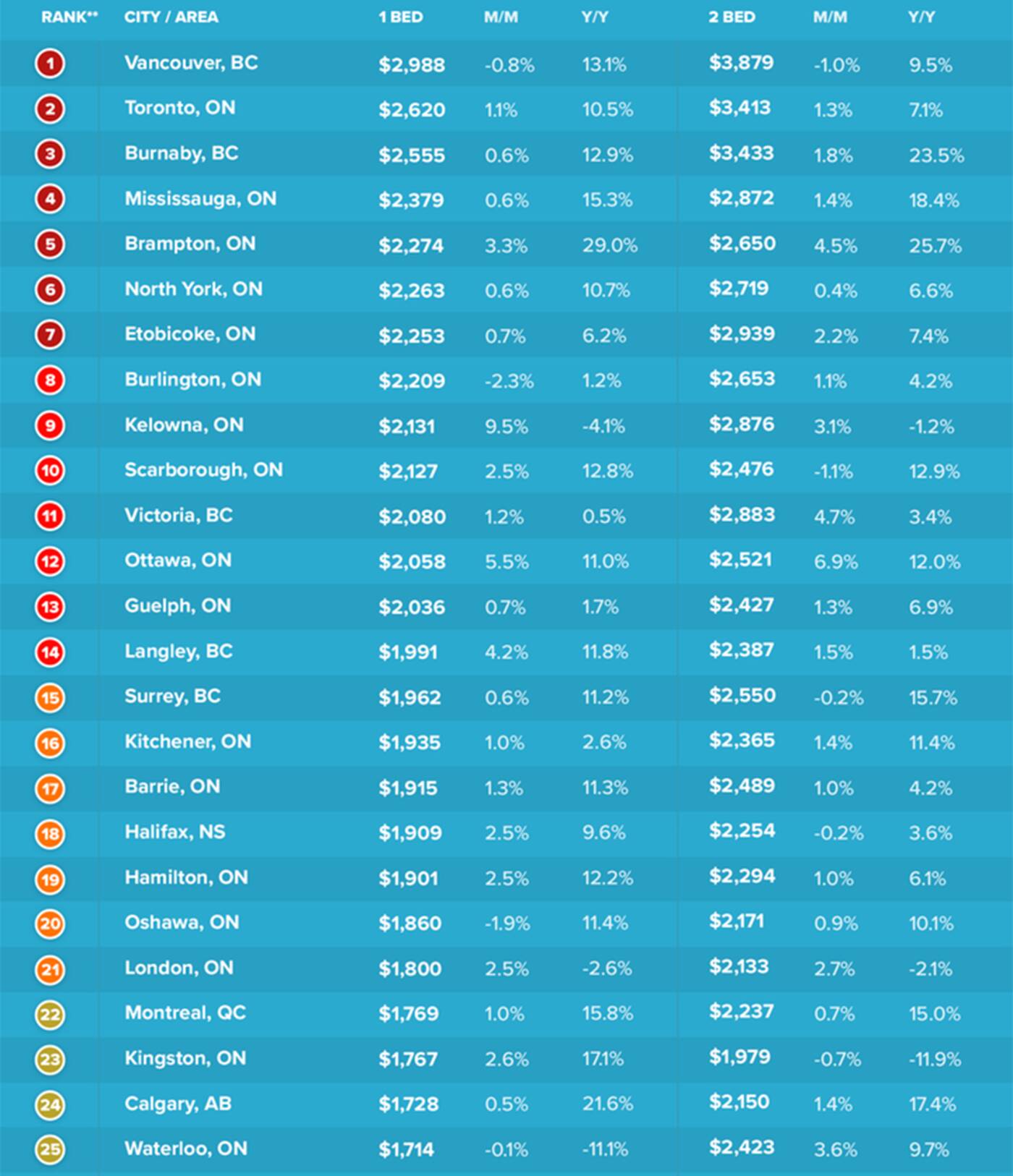
Rent prices in Brampton are somehow climbing faster than any other Canadian city
If you think the jump in Toronto rent prices is tough, you should speak to anyone trying to find a new place in neighbouring Brampton, where prices for one- and two-bedroom units may be lower, but are increasing faster than all other cities in Canada.
According to new data from Rentals.ca and Urbanation, rents for purpose-built and condominium apartments in Brampton hit an average of $2,713 per month in August, which is a whopping 21.6 per cent in growth from the same time last year.
For one-bedroom units specifically, prices soared a staggering 29 per cent (to $2,274), and for two-bedrooms, 25.7 per cent (to $2,650), both significantly more than any of the other 35 larger cities surveyed.
By comparison, Toronto rents spiked 8.7 per cent in the same period, reaching the only slightly higher $2,898 per month, with an annual hike of 10.5 per cent for one-bedrooms (to $2,620) and 7.1 for two-bedrooms (to $3,413).
People online seem to find these figures quite surprising given the difference in amenities and overall quality of life in the very suburban Brampton versus bustling downtown T.O. But, the numbers serve as just another indication of how bad the housing market has become in the area, as well as the country at large.

Brampton beat out 34 other larger Canadian municipalities (list items 26-35 not pictured here) when it came to year-over-year rent growth for one- and two-bedroom apartments in August. Chart from Rentals.ca's September 2023 National Rent Report.
Politicians and stakeholders continue to advocate for more housing ASAP as Canada deals with record immigration numbers paired with sky-high inflation rates, pushing both homeowners and renters to their financial edge.
Traditionally cheaper markets in close proximity to bigger urban centres, such as Brampton, are becoming less and less affordable alternatives as a result.
Though Brampton saw the biggest price jump for one- and two-bedroom purpose-built and condo apartments out of the 35 largest cities surveyed, it is worth noting that the smaller cities of Richmond, B.C. and Oakville, Ontario — which didn't make Rentals.ca's widely-spread infographic from this latest report — saw even greater overall price escalations of 28.1 per cent (to $3,120) and 23.1 per cent (to $3,007), respectively.
Latest Videos
Latest Videos
Join the conversation Load comments







